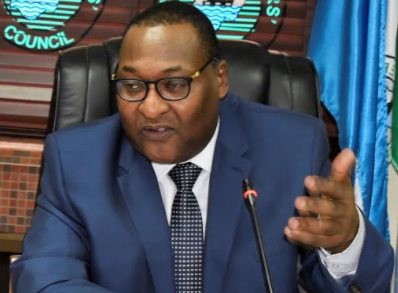The Vice Chairman of the Senate Committee on Customs, Ade Fadahunsi, has called for probe of the Comptroller-General of Customs, Hameed Ali, accusing him of paying N1.6 billion to a consultant for the recruitment of 3,200 personnel into the service.
There had been complaints concerning the recruitment exercise, which started in April 2019.
The senator condemned Ali’s decision to using consultant for the recruitment exercise, an act he said the Nigerian Army would never do.
Fadahunsi, who is a retired Assistant Comptroller-General of Customs and senator representing Osun East, had said: “The CG wants to recruit 3,200 persons and he paid N1.6 billion to a
consultant to recruit 3,200 persons. The money is not for training, but to just recruit them.
consultant to recruit 3,200 persons. The money is not for training, but to just recruit them.
“I asked him if the Nigerian Army ever used consultants to recruit personnel and he said no. He said Customs officers are corrupt and he is bringing in a consultant to recruit 3,200 persons and he will pay the firm N1.6 billion.
“Are you recruiting five million people? The N1.6 billion is even in the budget and that is one of the reasons the budget was being queried by the leadership of the Senate.”
Reacting, spokesperson of the Customs, Joseph Attah, said on Tuesday that: “The N1.6bn Naira being quoted for recruitment of 3,200 people into the Nigeria Customs Service without the
details captured in the budget is quite misleading.
details captured in the budget is quite misleading.
“For clarity, the correct figure is N1,570, 769,000.” Attah continued that: “This covers recruitment process which is N300,000.000, feeding 0f 3,200 put at N2000 each, daily for 6 months amounting to N1, 152,000000.
“Then Logistics, training kits and teaching allowances all carefully calculated to arrive at the
N1,570,769,000.00.
N1,570,769,000.00.
“It is therefore wrong to attribute the sum to only the recruitment, excluding the bigger picture of 6
months training period.
months training period.
“On the issue of NCS new headquarters, variations of the contract that was awarded in 2006 can only be a consequence of changes in the prices of items within a period spanning over a decade.”


































































